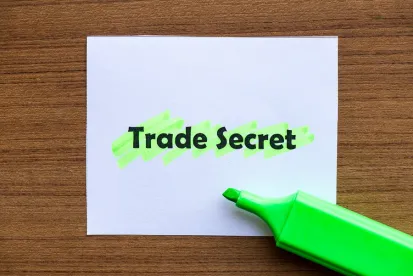In a high-profile trade secret case, a federal court in Chicago ruled that the federal Defend Trade Secrets Act (DTSA) extends beyond the U.S. and covers actions and damages that occur in other countries.
Background. Back in 2017, telecommunications and technology conglomerate Motorola Solutions, Inc. brought a lawsuit against rival radio manufacturer Hytera Communicatoins Corporation, Ltd. in the federal district court for the Northern District of Illinois. Motorola claimed that Hytera hired three of Motorola’s former engineers who brought thousands of Motorola’s confidential documents and trade secrets with them to Hytera, which used those documents to make a digital radio that was an exact copy of Motorola’s digital radio.
After a trial that lasted more than three months, an eight-person jury took only two and a half hours to award Motorolla $764.6 million in damages. It compromised just under $350 million in compensatory damages, representing all of Hytera’s worldwide profits from selling the radios, and over $400 million in punitive damages, designed to deter trade secret misappropriation in the future. The verdict was one of the largest awarded under the relatively new Defend Trade Secrets Act (DTSA), signed into law by President Obama in 2016.
One particular aspect of the decision may prove very significant for employers striving to protect their confidential information. While it was clear that the DTSA applies across state lines, no federal courts had yet given a detailed look at whether companies can sue competitors and be awarded damages for trade secret theft that occurs outside the U.S.
Before the Motorola and Hytera jury began deliberations, the court had to answer that exact question. The engineers Motorola accused of stealing its trade secrets were all based in Motorola’s Malaysia offices. Because Motorola sued in the U.S. seeking worldwide damages, Hytera filed a motion to exclude damages other than U.S.-based profits from the jury’s damages calculation.
Ruling. The court initially noted that most federal civil statutes are not extraterritorial in their reach, that is, they don’t extend to allow damages for actions that occur outside the U.S. But the court reasoned that Congress clearly intended the language of the DTSA to allow lawsuits against companies who have stolen trade secrets in a foreign jurisdiction. Given a verdict of this size, Hytera will likely appeal, but the court’s reasoning seems sound and extraterritorial application of the DTSA is likely here to stay.
Take Away. This ruling is important for companies who seek to protect their trade secrets beyond the U.S. If your company does business in a foreign jurisdiction, particularly one that does not have the U.S.’s robust intellectual property protections, the DTSA may provide a remedy in the event of foreign trade secret theft. Likewise, it is important to ensure that your company has strong policies in place against trade secret theft among your own employees, as well as onboarding requirements designed to prevent theft of confidential information from competitors. Even if your company is doing business in jurisdictions without significant trade secret protections, this ruling may open it up to liability here in the U.S.




 />i
/>i
